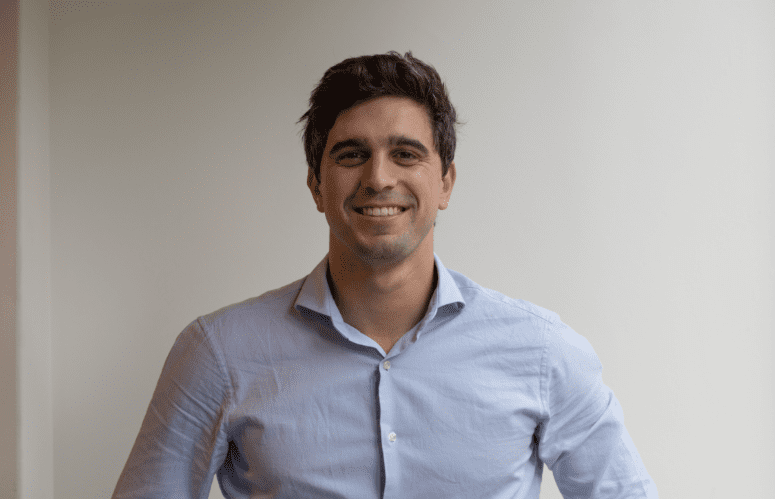
Nick Molnar is the 28-year-old founder of Afterpay, an Australia-based financial tech platform which recently launched in the U.S. with major retailers and brands, allowing shoppers to purchase products in four interest-free installments instead of paying all at once.
Molnar has navigated change by taking notice of the shifting spending habits of millennials, which has evolved into a more cashless and even credit-free lifestyle. Afterpay has connected with millennial shoppers with its payment solution, and is working with brands such as Urban Outfitters, Revolve, Anthropologie, and more to appeal to these consumers.
Chief Executive caught up with Molnar to talk about what inspired him to launch his business, managing growth, his advice for future millennial CEOs, and the importance of company culture at Afterpay. Here are highlights from our conversation:
What inspired him to launch Afterpay
I think it was a combination of a sequence of events that kind of taught me about this millennial shift in payment behavior, and preference of debit cards and aversion of credit. It all started because my family was in retail—they were in jewelry. I sold the most jewelry on eBay in Australia out of my bedroom when I was at university, and then I ended up founding Afterpay with my neighbor who was running one of the large investment funds in Australia. So it was the coming together of myself being a millennial, and learning firsthand about the shift in payment behavior, coming from a retail background, and just everything was always about retail, and then my co-founder brought an amazing dimension to the table as well.
Managing growth as business scaled up
It’s been an amazing ride for us. We raised our first round of money 3 years ago with 10 retailers and a couple thousand customers, and now we’re a publicly listed company with 16,500 retailers, and processing more than 10% of online retail in Australia. So the growth has just been really exponential.
To me the most challenging part of growth is making sure that you can forward plan, and back yourself to achieve scale, because with scale comes operational components like customer service, and other things that just naturally have to scale with you. So scaling up, scale or infrastructure add core components of the customer experience to me was something that we probably learned really early on, and we were very conscious of staying ahead of the curve, and it’s hard to stay ahead of the curve because you’ve got to really back yourself as an organization to grow into what you’re planning, but if you don’t do that, the relationship that you build with the customer is potentially hindered at such an important part. To me, if you build a network that’s self-fulfilling like Afterpay, once you reach that kind of tipping point, the growth starts to just snowball, but it’s all those other complementing pieces which you have to focus on.
Advice for the next generation of CEOs
I read an interesting statistic the other week, which was that in seven years time millennials will hold 50% of disposable income in the U.S. It’s an amazing power that’s coming through. I think that everyone discredits millennials for these qualities, the fact that we graduated and came into the work force at a time where we were at the forefront of the technology evolution, I think we have a competitive advantage to drive scalability, and quickly. It all comes down to a central theme of making sure that you’re in a job that you love getting out of bed for every morning. It’s hard to find what pocket you love, and where you fit, but once I think a millennial finds that particular point, I think the output is far greater than any other generation.
The importance of company culture
I think the early people you hire create the culture more than any words that you put on paper, because ultimately, those people that are living and breathing it and actually they’re the ones that are building out your team. If you get the right construct of an early team, it becomes actually quite self-fulfilling. We were very thoughtful in our values and were slow in articulating them, because we wanted to make sure they were really us. For us it does come back to that core of hiring good people, but then as an example, one of our core values is being really, really customer centric. Everyone says, “I’m customer first,” but we’re really, really customer first. We actually practice what we preach. So there’s an element of that which is the DNA of the company, and why it was built the way it was, but then the overarching element is to make sure that you have the right people overlaid on that, that actually believe in that vision, and that are going to execute it. I think it is a combination of people and culture which facilitates the vision of the company and it’s that core group of people at the start which really allows the business to scale.
Related: Embark CEO On Combining His Passion For Dogs And DNA

Chief Executive Group exists to improve the performance of U.S. CEOs, senior executives and public-company directors, helping you grow your companies, build your communities and strengthen society. Learn more at chiefexecutivegroup.com.
0

1:00 - 5:00 pm
Over 70% of Executives Surveyed Agree: Many Strategic Planning Efforts Lack Systematic Approach Tips for Enhancing Your Strategic Planning Process
Executives expressed frustration with their current strategic planning process. Issues include:
Steve Rutan and Denise Harrison have put together an afternoon workshop that will provide the tools you need to address these concerns. They have worked with hundreds of executives to develop a systematic approach that will enable your team to make better decisions during strategic planning. Steve and Denise will walk you through exercises for prioritizing your lists and steps that will reset and reinvigorate your process. This will be a hands-on workshop that will enable you to think about your business as you use the tools that are being presented. If you are ready for a Strategic Planning tune-up, select this workshop in your registration form. The additional fee of $695 will be added to your total.

2:00 - 5:00 pm
Female leaders face the same issues all leaders do, but they often face additional challenges too. In this peer session, we will facilitate a discussion of best practices and how to overcome common barriers to help women leaders be more effective within and outside their organizations.
Limited space available.

10:30 - 5:00 pm
General’s Retreat at Hermitage Golf Course
Sponsored by UBS
General’s Retreat, built in 1986 with architect Gary Roger Baird, has been voted the “Best Golf Course in Nashville” and is a “must play” when visiting the Nashville, Tennessee area. With the beautiful setting along the Cumberland River, golfers of all capabilities will thoroughly enjoy the golf, scenery and hospitality.
The golf outing fee includes transportation to and from the hotel, greens/cart fees, use of practice facilities, and boxed lunch. The bus will leave the hotel at 10:30 am for a noon shotgun start and return to the hotel after the cocktail reception following the completion of the round.